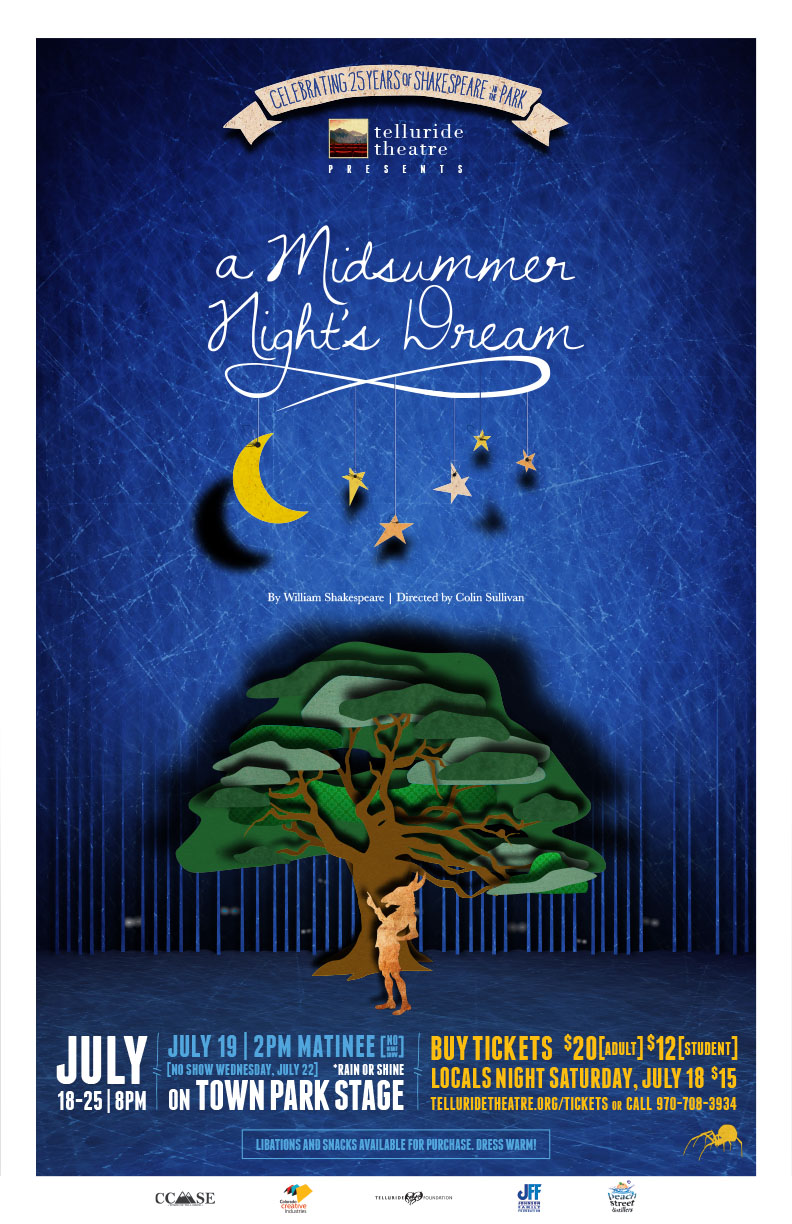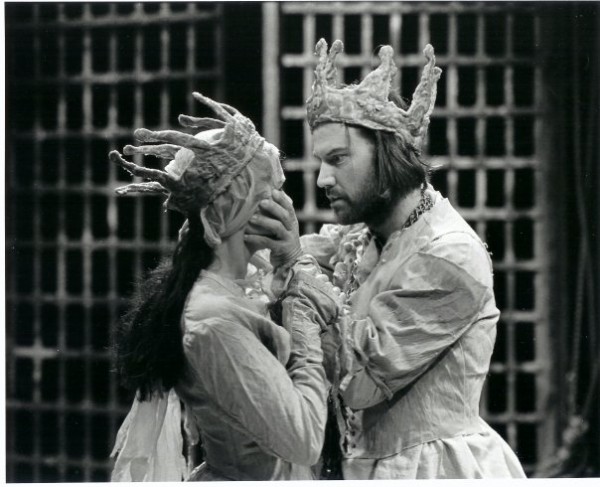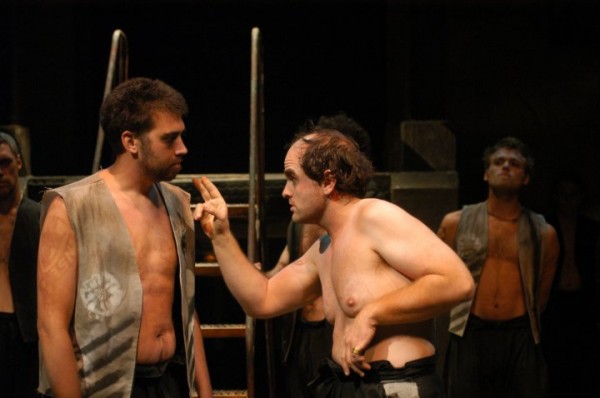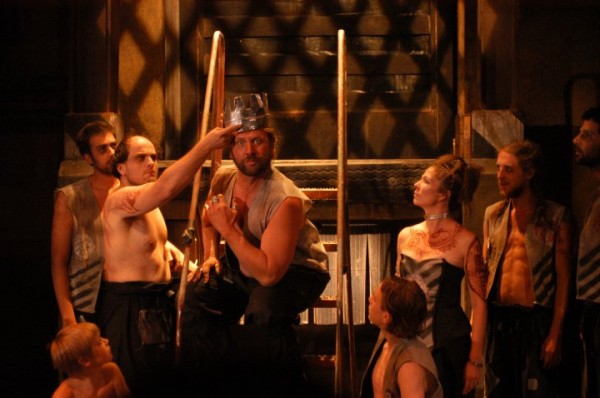
11 Jul Celebrating 25 Years of Shakespeare-in-the-Park
Telluride Theatre celebrates 25 years of Shakespeare-in-the-Park with director Colin Sullivan’s adaptation of classic comedy, “A Midsummer Night’s Dream.” Saturday, July 18 – Saturday, July 25, 8 p.m.; Sunday matinee, July 19, 2 p.m., Town Park. Rain or shine. Suitable for all ages. Tickets, $20 for adults; $12 for children, here or call 970-708-3934.
“I will hear that play;
For never anything can be amiss,
When simpleness and duty tender it.”
~ Theseus, V.i. ~
Why do we keep returning to Shakespeare? Short answer: no other writer holds up a truer mirror to human nature. The Bard manages to slice and dice, distill and dramatize emotions that don’t date – and seemingly without an agenda: rather than trying to save mankind with his pen, Shakespeare cuts to the quick with his poetry, which acts like dimestore magnifiers that allow us to see what is actually described in the small print.
Telluride Theatre celebrates 25 years of Shakespeare in the Park with its production of what might be the Bard’s most magical play. In a nutty shell, “A Midsummer Night’s Dream” is all about girl meets boy. Girl falls hard for boy. Girl loses boy when a naughty fairy sprinkles love potion on the boy’s eyelids, which makes him tumble for another girl. Girl wins boy back, with a little help from magical friends. And all that happens over the course of one enchanted midsummer’s evening.
“I chose A Midsummer Night’s Dream for the 25th anniversary of Shakespeare in the Park because it’s one of his most iconic plays. When you mention the title, people immediately become excited. It also feels like a very Telluride play with its fairies, forest, and magic… I just love the story or stories and it has been a while since Telluride has seen a production,” Sasha Sullivan, artistic director, Telluride Theatre.
“In many ways I think this play is about the way Shakespeare’s own theatre world worked in the 1590s: patronized by the wealthy and powerful, built by the rough hands and long hours, and made real through dreams and magic. That’s the ‘Midsummer’ I’m interested in creating on the Town Park stage,” said Colin Sullivan, director.
Colin continued:
“The first time I saw ‘A Midsummer Night’s Dream’ performed, it was on a balmy summer evening in a local park near my childhood home in the Adirondacks. I was nine. I must have been taken by something that night, as I find myself standing here again, waiting in the wings for more magic.
“When I was asked to direct ‘Midsummer Night’s Dream,’ I was as excited and terrified as I have been in a long while. I’ve enjoyed directing in the past. I dove face-first into being an actor long ago and haven’t really looked back. Till now. Directing, it turns out, is a lot like teaching, which I also love: you front-load hundreds of hours digging for exactly what makes this particular story special, then you spend the next six weeks working with your actors to find out what makes them special, and how to package and showcase all that is special for a special audience.”
“A Midsummer Night’s Dream,” A brief history and lots of speculation:
Shakespeare whipped up “Midsummer Night’s Dream” in the same years, around 1595, he wrote his famous play about two “star-crossed lovers,” “Romeo & Juliet.” Historians describe “Dream” as “Romeo & Juliet” turned inside out and transformed into a comedy. In both plays there are strong central figures of authority who attempt to write the world into their own rigid script: the Prince in “Romeo and Juliet;” and Theseus, Duke of Athens, in “Dream.” In both plays there are controlling fathers who want to choose a spouse for their daughters: old Capulet wants Paris for his Juliet; Egeus wants Hermia to marry Demetrius. And in both cases, the ladies refuse, shining their light on other amours, Romeo and Lysander. And in retribution, both daughters are threatened with the life of a nun. Both plays also make much of the difference between day and night: night transforms and day, rigid and inflexible, makes the law. And so on.
In “Dream,” a group of craftsmen (the “Mechanicals”) bumble their way through a ridiculous performance of “Pyramus and Thisbe” (a story taken from Ovid’s “Metamorphoses.”). The Mechanicals’ play is widely considered to be Shakespeare’s light-hearted and silly mockery of “Romeo and Juliet.”
But did Shakespeare write “Dream” to be performed at a nobleman’s fancy wedding? Some scholars think so. That is a nice idea and it makes sense because such plays were often commissioned for big blowouts. (And in the play itself, a group of amateur actors puts together a performance to celebrate the marriage of the Duke Theseus and Hippolyta.) But sadly, there’s no real evidence to support that particular idea.
But what is known is that around the time he wrote both “Dream” and “Romeo and Juliet,” Shakespeare was relatively new to the London Stage. However, he was already accomplished enough to become part of a funded acting troupe, the Lord Chamberlain’s Men, who split the profits, the debts, and the largest acting roles eight ways. Scholars say the troupe regularly performed the Bard’s plays at a theatre simply called “The Theatre,” built by the family of one of his leading men, Richard Burbage. However, Shakespeare and the Lord Chamberlain’s Men grew tired of performing at that venue (after fighting over a lease) and dismantle it in the dead of a winter night in 1599, carrying the beams across the Thames to use when building Shakespeare’s legendary Globe Theatre, owned and built mostly by its actors. In fact, “Dream” may have been the first play Shakespeare wrote for his own theater and for his first acting troupe, just before he became a brand name in Elizabethan London.
Weighing in on 25 years of Shakespeare-in-the-Park:

‘Be not afraid of greatness,” Twelfth Night, image, Melissa Plantz. Man in the middle, Ashley Boling
The Telluride REP, a precursor to Telluride Theatre, was officially started in 1991, but the actors who started the company performed shows together in 1990. There were years when everyone took a time out; and years when other playwrights were celebrated.
“We want to honor the history and all of the hard work that went into making Shakespeare-in-the Park a wonderful Telluride tradition,” said Sasha Sullivan.
What past (and some present) players have to say:
“Will said all the world’s a stage, why not use this view!” – Kandee DeGraw
“Incredible friendships were made during 10 years of performing with the REP—now Telluride Theatre. It was a magical time. It’s fantastic that Shakespeare-in-the-Park is still going strong after all these years. And there is no other venue in the world quite like the Telluride Town Park stage. Congratulations to Telluride Theatre for keeping it going!!” – Judy Kohin
“Shakespeare-In-The Park has become a beloved Telluride summer tradition. As a performer, I like to imagine I am acting on the Globe Theater stage, where the audience was as close as our audience is on the Town Park Stage today. The energy that sizzles between the players and the audience is incredible.” – Suzanne Cheavens
“I have performed Shakespeare in our own Town Park every year since the beginning. I love the plays, love the mountain backdrop, love the casts, and love entertaining audiences with classic, timeless theatre. My summer would not be complete in Telluride without a Shakespeare play in the park.” – Ashley Boling
“Not sure how to sum it up concisely, as it really has been a huge part of my life over the years. My first Shakespeare as an actor, then getting to direct a production almost 20 years later. I think the things that make it so amazing are the setting, of course, (million dollar backdrop, already there for you), the fact that it’s outside and yet so intimate, there’s just some kind of magic out there that kind of takes everyone to another level. Not sure what it is, but it’s a very special thing.
“Town Park is our version of the Globe Theatre, where the audience looks out at a real backdrop instead of a painted one, and where the fading light of the evening just draws everyone in deeper to the show as it progresses. Plus it’s generally cold as heck, which I think is always the best way to do live theater.
“Shakespeare in the Town Park setting literally changed my life.” – Jeb Berrier
“The hard work we put into presenting Shakespeare-in-the-Park was paid off in the heightened thrill of performing on that stage. Looking out to the mountains and the changing sky, the smells of Bear Creek hit the dust and grass and the cool air, made our skin tingle… it lit us up!” – Angela Watkins










Sorry, the comment form is closed at this time.